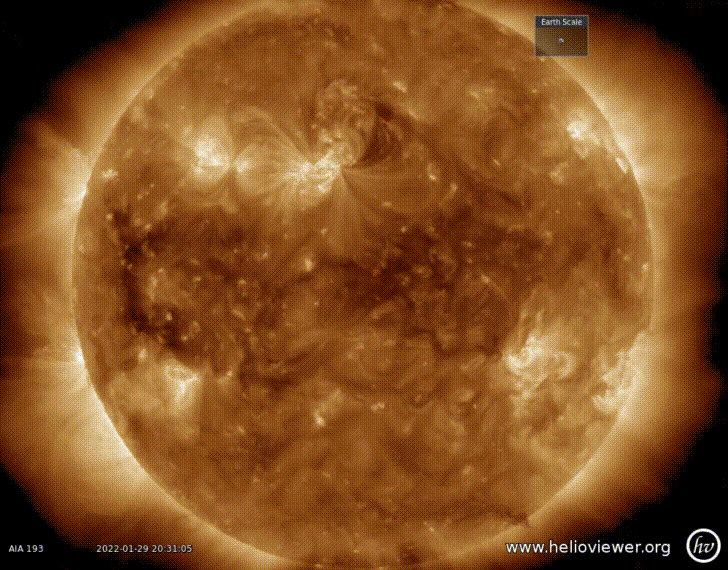Space Weather Alert - 31st January 2022
What Has Happened?
An Earth-directed Coronal Mass Ejection (CME) lifted off the Sun around 23:35 UTC on the 29th of January. The CME is travelling at speeds above the background solar wind and it is estimated to arrive at Earth late on Tuesday 1st or early Wednesday 2nd. This CME is expected to cause a significant disturbance to the geomagnetic field, making periods of STORM conditions likely.
Assuming clear, dark skies, there is a greater chance of seeing the aurora on the 1st and 2nd of February. Those in Scotland, northern England and Northern Ireland have a better chance, if the weather is favourable on 2nd of February.
Sign-up to receive Geomagnetic Disturbance Alert emails.
Follow us on Twitter:
Follow @BGSauroraAlert for more occasional aurora alerts.
Follow @BGSspaceWeather for daily space weather forecasts.
Glossary
- BGS
- The British Geological Survey is one of the Natural Environment Research Council's Research Centres.
- CME or Coronal Mass Ejection
- The eruption of a portion of the outer atmosphere of the Sun into space, caused by rapid changes in its magnetic field. Often occurs along with a solar flare.
- Solar Flare
- Energy released by the explosive reorganisation of magnetic fields within the Sun's atmosphere.
- Solar Wind
- The ever-present expansion of the Sun’s hot outer atmosphere into the solar system, which carries space weather within it.


